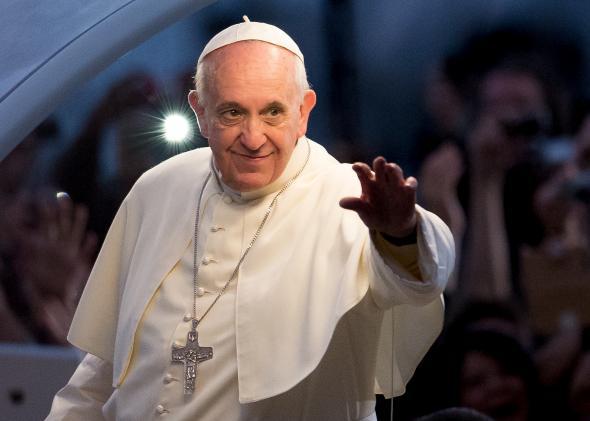In a move that has been called “an earthquake” in the Roman Catholic Church’s approach to homosexuals, the Vatican released a document on Monday that urged clergy and parishioners to treat gay Catholics—especially those in committed relationships—with more respect than had been previously condoned. The statement, called “Relatio,” was the result of a week-long conference on the contemporary family organized by Pope Francis. The 200 bishops who participated called on the church to recognize the “gifts and qualities” that homosexuals can contribute and suggested that it is possible for the Catholics to make a “fraternal space” for gays without necessarily compromising on basic doctrine, which continues to view homosexual sex acts as sin and to deny the validity of same-sex marriage.
“[A]re we capable of welcoming these people, guaranteeing to them a further space in our communities?” the document asked. “Often they wish to encounter a Church that offers them a welcoming home.” According to Reuters, the statement will continue to be discussed over another week of meetings, and a final, possibly changed version, will be produced in the end.
“Relatio” comes at a particularly charged moment for Catholicism as it relates to LGBTQ people. Many saw Pope Francis’ words last year—“If a person is gay and seeks God and has good will, who am I to judge?”—as signaling a kind of perestroika, and this “synod” statement suggests that the Church’s position on the issue is indeed reforming to a degree. However, in the U.S., the rapid expansion of same-sex marriage rights across the various states has given rise to a growing number of high-profile controversies in which gay Catholics have been fired from lay positions as teachers and choir directors and barred from receiving communion for marrying their partners—often despite having been openly recognized as committed couples in their local church and communities for decades.
In a recent and particularly egregious example, a couple of 30 years in Lewistown, Montana, was “disciplined” by a 27-year-old priest in this fashion after he discovered they had quietly gotten married in Seattle earlier in the year. They would no longer be welcome to sing in the choir, nor could they hold any other roles in the church; the body and blood of Christ would be similarly withheld. The couple was told they would be welcomed back only if they got a divorce, moved out of their shared home, and publically condemned same-sex marriage. Columnists like Frank Bruni and Andrew Sullivan have rightly railed against these stories: “When a church responds to an act of love and commitment not by celebration but by ostracism, it is not just attacking a couple’s human dignity; it is also attacking itself,” wrote Sullivan. And Ira Sach’s critically acclaimed film Love Is Strange recently depicted a fictionalized version of the very real situation for audiences around the country.
While Monday’s Vatican statement does not constitute a formal change in policy or theology, it should have the effect of discouraging these kinds of scenarios, especially considering that the document recognizes some “positive aspects of civil unions and cohabitation.” This language seems to apply to both homosexual and heterosexual relationships; however, in a clarification that will smart for gay Catholics and their allies, the bishops asserted that gay committed relationships “cannot be considered on the same footing as matrimony between man and woman.”
